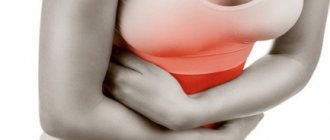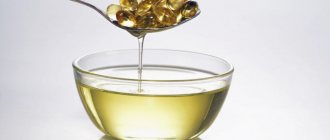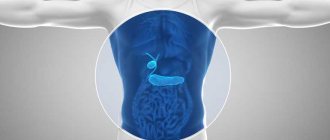Gastritis is an inflammation of the gastric mucosa. If the inflammatory process spreads to the duodenum, gastroduodenitis occurs. These diseases come in two types: with low or high acidity of gastric juice.
In the absence of proper treatment, gastritis develops into a chronic form, characterized by the formation of relapses. In this case, the restoration of the epithelium is disrupted, atrophy develops, which in most cases leads to secretory insufficiency and disruptions in the functioning of the gastrointestinal tract. What to take during exacerbation of gastritis?
Types of gastritis
There are several types of the disease in question.
| Name of type of gastritis | Characteristic |
| Gastritis type A (autoimmune). | The inflammation is of a primary autoimmune nature. Gastritis type A is not common, diagnosed in 5% of cases. It is characterized by a long period of asymptomatic progression. |
| Type B (bacterial). | It develops due to infection with a pathogenic microorganism called Helicobacter Pylori. Clinical signs:
In some cases, the disease is asymptomatic. |
| Type C (reflux gastritis). | It occurs as a result of the reflux of the contents of the gallbladder and duodenal juice into the stomach. Common manifestations of reflux gastritis are:
|
Not just about sleep
Winter and summer are considered stable, stable seasons. But in the fall (as well as in the spring), the production of melatonin in our body, a hormone that not only controls our sleep, but also regulates the secretion of gastric juice, is significantly reduced. And as you know, increased production of this fluid increases the risk of gastrointestinal diseases.
Moreover, during transition periods this hormone itself, which is supposed to be released at night (from 23.00 to 6.00), suddenly begins to be produced in the middle of the day. That's why we can't wake up in the mornings in the fall, and in the middle of the working day we start yawning.
Article on the topic
Why does my stomach hurt? Three reasons to see a doctor
Causes of exacerbation of chronic gastritis
Most often, exacerbation of chronic gastritis occurs in the spring and autumn. This condition also develops due to the abuse of alcohol-containing drinks, fatty, smoked, and spicy foods.
In addition, there are several factors that provoke the development of exacerbation of the disease:
- weakening of the immune system;
- use of medications;
- smoking;
- overeating/starvation;
- allergic manifestations to certain products;
- intoxication of the body;
- prolonged/frequent stress;
- disease of the gallbladder and/or pancreas (cholecystitis, pancreatitis);
- dysfunction of the sphincter of Oddi;
- harmful working conditions;
- diseases of infectious origin in acute form.
In order to prevent exacerbation of chronic gastritis, you should adhere to a balanced diet, which should be fractional.
What worries
These are the symptoms that require an urgent visit to a gastroenterologist.
Pain, discomfort in the abdomen. If the pain is above the navel, most often the problem is associated with the stomach, if below – with the intestines. However, this symptom may be associated with both the gallbladder and the pancreas.
Impaired appetite (decreased or, conversely, increased appetite). The first is typical, for example, for antral gastritis, the second for erosive gastritis or peptic ulcer of the stomach and duodenum.
Nausea (a common sign of gastritis).
Article on the topic
Abdominal problems. What folk remedies will help with gastritis?
Heartburn (typical of cardiac insufficiency or diaphragm hernia).
If a doctor, after listening to a patient’s complaints about stomach pain or other symptoms, feeling his stomach and asking a couple of more questions, confidently writes in the medical record, say, “gastritis,” you should run away from such a specialist as fast as you can. After all, such a diagnosis cannot be made by eye; it is first necessary to perform a gastroscopy and take a biopsy of the damaged area of the mucosa in order to have morphological confirmation of the diagnosis (and to exclude the presence of a malignant process).
Moreover, the biopsy should be taken not from one area, but preferably from 3–4 places at once for reliability. If a gastric ulcer is suspected, gastroscopy and biopsy are also indispensable.
Medicines for gastritis
There are several groups of medications that are prescribed for gastritis.
Antacids
Antacids are prescribed to quickly reduce acidity and eliminate signs of inflammation of the gastric mucosa. The medicinal effect occurs a third of an hour after consumption and lasts about 2 – 3 hours.
Antacids are used for therapy:
- Duodenitis and gastritis in chronic or acute form with high acidity.
- Ulcerative lesion of the duodenum;
- Gastroesophageal reflux disease (GERD), in order to neutralize hydrochloric acid as it refluxes from the stomach into the esophagus.
- Digestive disorders resulting from poor diet, abuse of alcoholic beverages, taking certain medications, smoking.
Ulcer according to the calendar
The course of chronic gastritis and stomach ulcers is much less subject to seasonal fluctuations. And first of all, in the fall, duodenal ulcer worsens. Doctors consider it a classic. And earlier, when hardware diagnostics were not yet so developed, such a diagnosis could be made only on the basis that the patient’s exacerbation occurs strictly twice a year (in spring and autumn). In addition, duodenal ulcers are characterized by so-called hunger pains, including at night. With other gastrointestinal pathologies, if they exist, they are less pronounced.
By the way, people sometimes confuse peptic ulcer and duodenal ulcer, considering them one disease. This is wrong. If a gastric ulcer can degenerate into cancer, then a duodenal ulcer never does. However, this disease seriously affects the quality of life and can lead to internal bleeding and stenosis (narrowing) of the organ - complications requiring urgent surgery. However, gastritis is also not a trifle. Some of its forms (primarily antral and fundal gastritis) can also develop into cancer, so they need to be properly treated and controlled.
My stomach hurts. How to protect a child from gastritis? More details
Folk remedies for exacerbation
To eliminate the painful symptom of acute gastritis, you can resort to traditional medicine.
Method No. 1
Ingredients:
- ½ tbsp. milk;
- 1 teaspoon of natural honey.
Actions:
The prepared ingredients need to be mixed and heated. Consume in small portions. To prevent relapses, it is recommended to drink the drink every day in the morning.
Method No. 2
Components:
- ½ liter of boiling water;
- a couple of large l. crushed dried currant leaves.
Actions:
Place the raw materials in a thermos, then pour boiling water. Leave for 3 hours to infuse. The finished infusion should be filtered. The resulting medicine must be divided into 2 doses during the day within 30 minutes. before meals.
Important!
In pharmacies today you can find medicines for stomach pain, nausea, heartburn and flatulence. There is a great temptation to treat yourself without visiting a doctor. But this cannot be done. By leveling the symptoms, you can overlook the development of dangerous pathologies, including cancer. In addition, the signs of different diseases are very similar, they are easy to confuse. For example, with coronary heart disease there is often pain not in the chest, but in the abdomen. Therefore, with any discomfort that appears for the first time, you must go to the doctor.
Diagnostics
When making a diagnosis, the doctor is based on the medical history, the patient’s complaints and the results of laboratory and instrumental studies.
The following methods are of greatest importance in diagnosis:
- pH-metry. The study allows you to measure the level of acidity of gastric juice and determine the type of disease, which is important for determining treatment tactics.
- The urease breath test reveals infection with Helicobacter pylori.
- FGDS is an invasive study that allows you to carefully examine the gastric mucosa, determine the extent, activity and depth of its damage.
- Ultrasound of the abdominal organs helps determine the presence of concomitant diseases that may aggravate the course of gastritis.
Features of treatment
Treatment of exacerbation of gastritis must begin immediately after the first symptoms appear. If the attack has not happened for the first time and the symptoms recur, patients can use the remedies prescribed by the attending physician. But more often than not, a person cannot independently determine why the discomfort arose. But the choice of therapy methods depends on this. Blood and urine tests, as well as instrumental examination of the digestive tract, will help confirm the diagnosis and detect complications in time.
Treatment of exacerbation of gastritis should be comprehensive. All chosen methods should quickly reduce the inflammatory process and relieve pain. It is also necessary to improve digestion, normalize the acidity of gastric juice, and restore damaged mucous membranes. To do this, you need to take certain medications and also follow a diet. Food greatly affects the condition of the gastric mucosa, so the patient’s diet must be constantly monitored. It is also important to normalize your daily routine, get good sleep, and avoid stress and heavy physical work.
In addition to traditional therapy, traditional methods can be used. Herbal decoctions are effective, for example, chamomile, yarrow, calendula, St. John's wort, elecampane, and sage. If you have low acidity, you can grind horseradish root, add honey and take 15 g before each meal.
Chamomile decoction will help relieve the patient's condition during an attack
Medicines
Drug therapy is the main method of treating exacerbations of gastritis. The choice of drugs depends on the severity of the pathology and the symptoms manifested. To relieve pain, it is most often recommended to take antispasmodics. These are No-Shpa, Drotaverine, Papaverine, Duspatalin. Sometimes analgesics are prescribed.
Important: drugs from the group of non-steroidal anti-inflammatory drugs are not recommended to be taken even in remission, as they severely damage the mucous membrane.
You can relieve pain during an attack of gastritis with the help of other medications. For high acidity, these are antacids: Almagel, Maalox, Rennie, Gastal and others. Proton pump blockers are effective, they reduce the secretion of gastric juice and protect the mucous membrane from its effects. These are Omeprazole, Pariet, Nolpaza, Ranitidine. For additional protection and restoration of the mucous membrane, bismuth preparations - De-Nol, Novobismol or Venter - can be used.
Other medications are used less frequently during exacerbations, mainly when certain symptoms are present. For example, antibiotics may be required if the inflammation is associated with increased activity of the Helicobacter bacteria. For nausea, Metoclopramide or Domperidone is prescribed; increased gas formation allows you to remove Espumisan, and enzyme preparations improve digestion.
For long-term gastritis, you need to drink products that replenish the lack of microelements. Most often these are iron supplements and B vitamins. Sometimes sedatives are prescribed, for example, motherwort or valerian.
Diet
Nutrition for different forms of gastritis differs slightly. It is necessary to remove foods from the menu that can worsen the condition. These are fatty foods, sausages, smoked meats, mushrooms, carbonated and alcoholic drinks, fresh baked goods, seasonings, canned food, spicy foods, sauces, as well as fresh vegetables and fruits. Food should be gentle, so you need to monitor its temperature and consistency. It is best to wipe the products and consume them only warm.
You need to eat little by little so as not to burden your stomach, but you should not go hungry, so it is recommended to eat every 3-4 hours. Slimy porridges, lean meat and fish, pureed boiled vegetables are useful. It is recommended to consume kefir or natural yogurt daily. It is necessary to follow such a diet for a month after the onset of an exacerbation.









